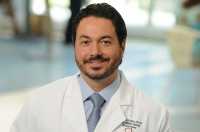
21 Mar Most Cardiovascular Guidelines Not Supported By Randomized Clinical Trials
MedicalResearch.com Interview with:
Renato D. Lopes MD, MHS, PhD
Professor of Medicine
Division of Cardiology
Duke University Medical Center
Duke Clinical Research Institute
Alexander C. Fanaroff, MD, MHS
Division of Cardiology and Duke Clinical Research Institute
Duke University, Durham, North Carolina
MedicalResearch.com: What is the background for this study? What are the main findings?
Response: About ten years ago, a group of researchers examined the evidence supporting guideline recommendations in cardiology for the first time. Quite surprisingly, they found that only 11% of recommendations in American College of Cardiology/American Heart Association (ACC/AHA) guidelines were supported by evidence from randomized controlled trials, the highest level of evidence. The researchers called for greater collaboration among investigators and funders in identifying key research questions, development of streamlined clinical trial methods, and expansion of funding for clinical research. Over the past 10 years, some of these steps have been taken, but it is unclear how the evidence supporting guideline recommendations has changed.
We therefore analyzed the 51 current cardiovascular guideline documents — 26 from the ACC/AHA and 25 from the European Society of Cardiology (ESC) — including 6,329 recommendations.
Overall, 8.5% of recommendations in ACC/AHA guidelines and 14.3% of recommendations in ESC guidelines were supported by evidence from randomized controlled trials. When looking specifically at guidelines that have been updated, we found no significant changes in the proportion of recommendations supported by evidence from randomized controlled trials.
MedicalResearch.com: What should readers take away from your report?
Response: Solid evidence from randomized controlled trials helps physicians understand how best to take care of patients; without good evidence, physicians are forced to rely on intuition or flawed data from observational studies. Randomized controlled trials can more definitively show which treatments work and do not work.
Despite a lot of hard work to facilitate conducting clinical trials to generate evidence critically needed to take care of patients, there has not been much change in the proportion of guideline recommendations supported by this kind of evidence. The incremental changes made in the last 10 years may not be enough, we may need wholesale changes in the way we conduct clinical research, with more focus on developing systems to utilize data generated in the course of routine clinical practice into randomized controlled trials, relaxation of certain regulations surrounding enrollment of patients into clinical trials and monitoring during clinical trials, and a greater focus on funding collaborative, multi-center efforts to conduct critical clinical trials.
It will also take a concerted effort to demonstrate to patients the importance of clinical trials; a small proportion of patients participate in clinical trials, and clinical trials can literally not happen without patients. It will take a team effort from researchers, physicians, the pharmaceutical and device industries, hospitals, insurance payers, and patients to make the necessary changes.
MedicalResearch.com: What recommendations do you have for future research as a result of this study?
Response: Our research focuses on cardiovascular guidelines, but we suspect the state of the evidence is probably similar in other specialties and subspecialties. It would be useful to know more about changes in level of evidence supporting recommendations in other specialties. More importantly, we would not necessarily call for more research about lack of clinical trials, but for more clinical trials!
There are so many important questions that don’t lend themselves to clinical trials as the clinical research ecosystem is currently constructed (with most studies funded by the pharmaceutical and device industries), but the medical research community should change the system so that these questions can be answered, and patients should partner with physicians and researchers in demanding that these questions be answered.
We have no disclosures related to this study.
Citation:
he information on MedicalResearch.com is provided for educational purposes only, and is in no way intended to diagnose, cure, or treat any medical or other condition. Always seek the advice of your physician or other qualified health and ask your doctor any questions you may have regarding a medical condition. In addition to all other limitations and disclaimers in this agreement, service provider and its third party providers disclaim any liability or loss in connection with the content provided on this website.
Last Updated on March 21, 2019 by Marie Benz MD FAAD
